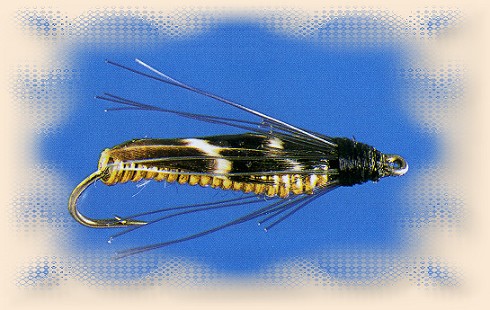
|
Brass Bug Compiled by Deanna Lee Birkholm |
|
Brass BugOriginator: George Grant, 1960s.Credits: From Trout Country Flies, From Greater Yellowstone Area Masters by Bruce Staples, published by Frank Amato Publications.
|

|
Brass Bug Compiled by Deanna Lee Birkholm |
|
Brass BugOriginator: George Grant, 1960s.Credits: From Trout Country Flies, From Greater Yellowstone Area Masters by Bruce Staples, published by Frank Amato Publications.
|